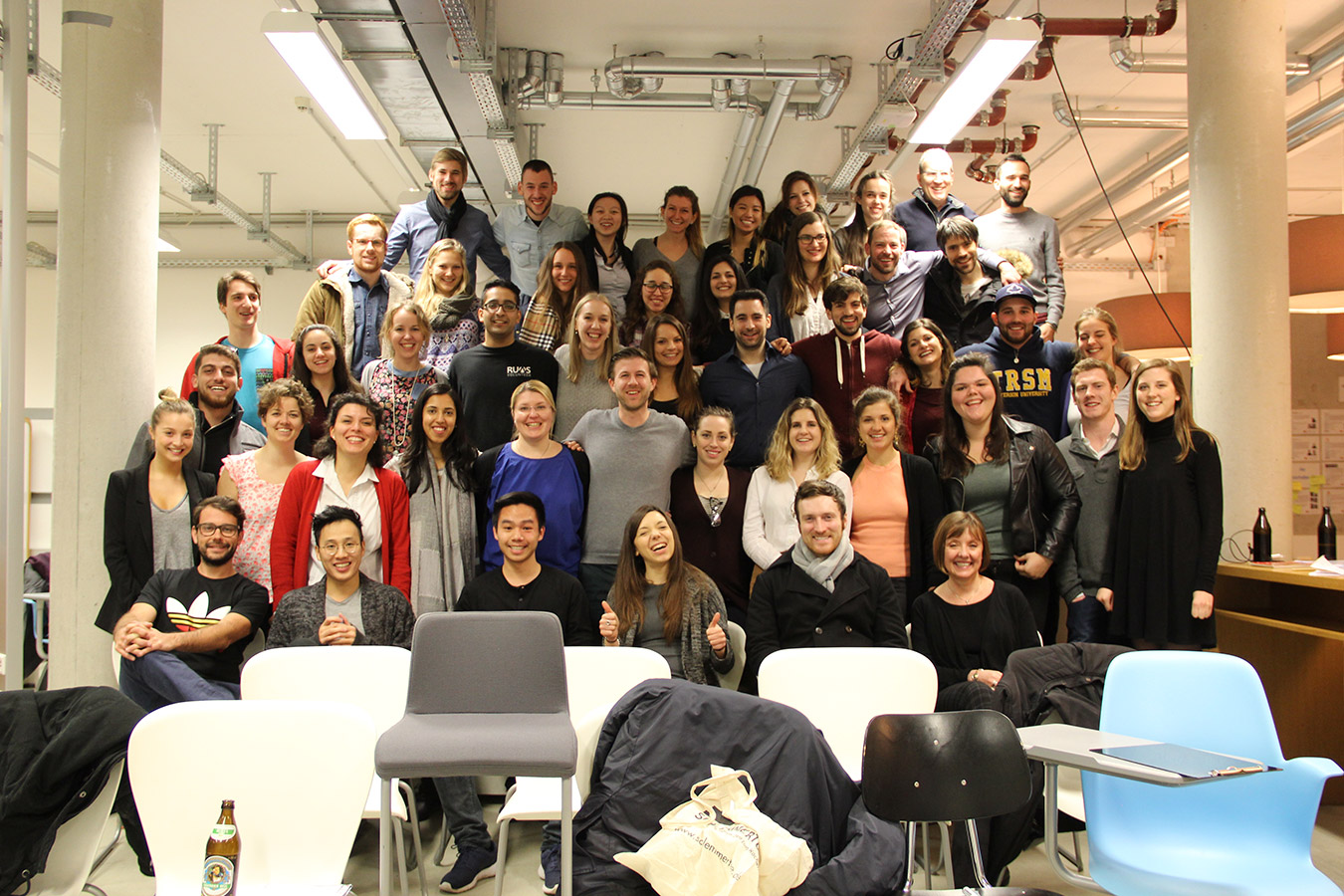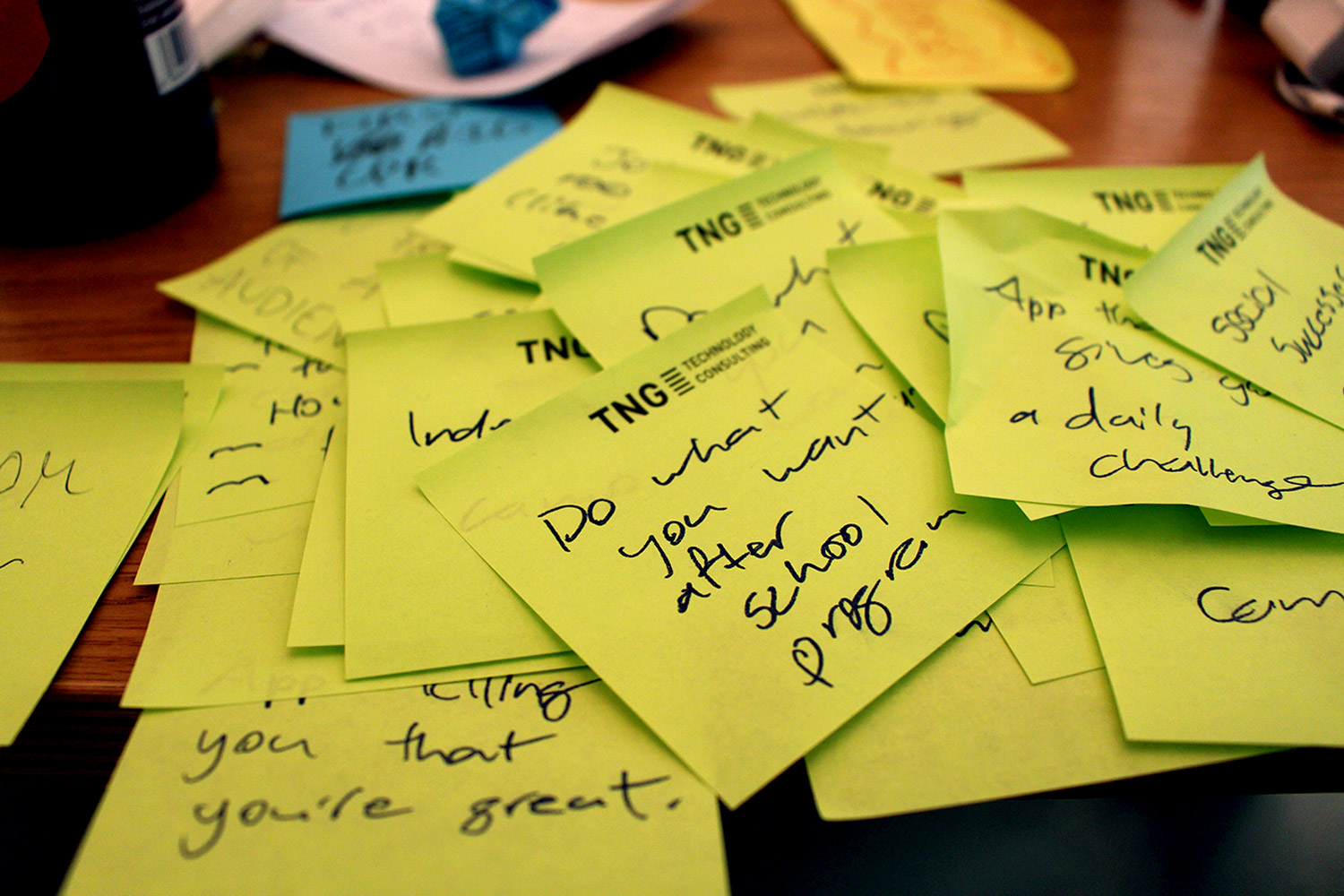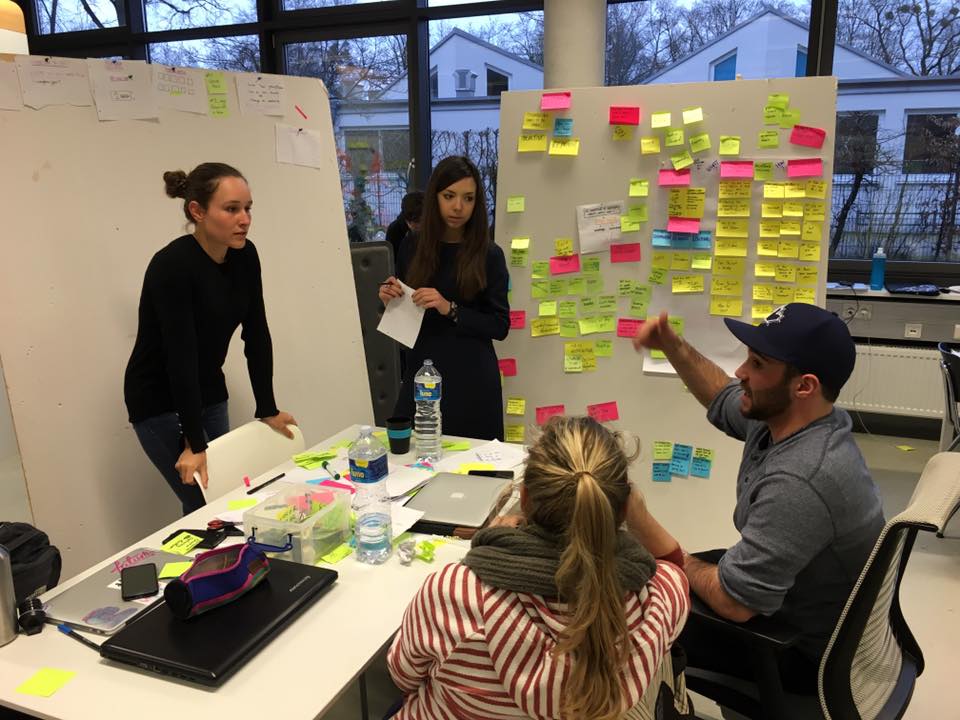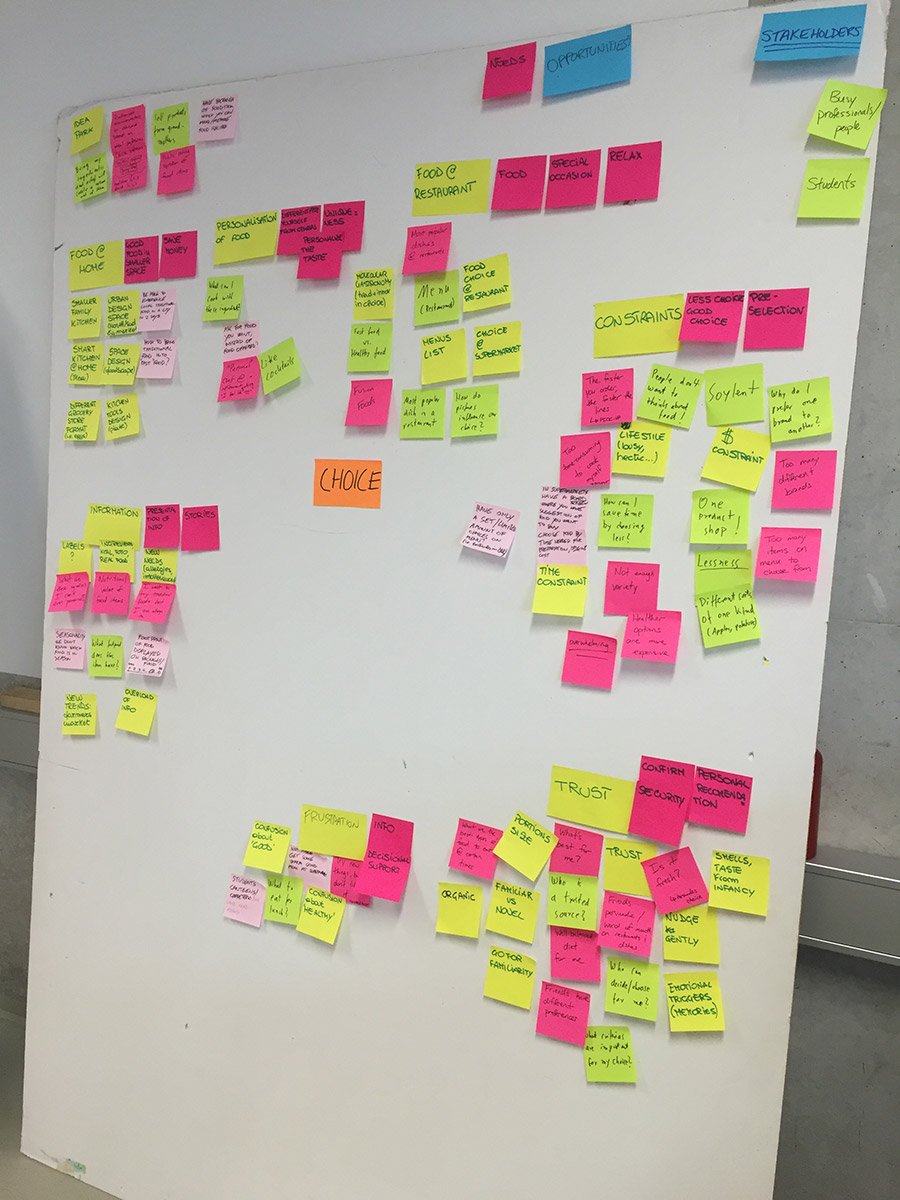TRSM Students Head to Munich for Design Thinking Bootcamp
Soaring cathedrals, sauerkraut and lederhosen may be some of the first things that come to mind when most Canadians think of Munich, Germany, but a group of Ted Rogers School of Management (TRSM) students recently learned that entrepreneurship and design thinking deserve to be added to that list.
The Bavarian capital boasts remarkably low unemployment rates compared to other cities in the European Union and around the world, and one theory for why is that design thinking and entrepreneurship are integrated into all education levels and disciplines.
Fifteen TRSM students travelled to Munich, along with Professor Steve Gedeon and Dr. Charlene Nicholls-Nixon, as part of an intensive week-long design thinking bootcamp hosted by the Academic Program for Entrepreneurship (APE) (external link) at the Strascheg Center for Entrepreneurship (external link) (SCE). The TRSM students were selected to participate based on their previous involvement in entrepreneurial projects and the skills they could bring to the multidisciplinary teams at the APE bootcamp.
The students spent six full days creating startup ideas with students and entrepreneurship coaches from around the world. Their task was to attempt to solve relevant social issues through design thinking and entrepreneurship. From educating youth about healthy food choices to redefining the school system, each team chose a problem and worked together to come up with innovative solutions.
Ambreen Khan, a fourth year Global Management Studies student and co-organizer of the trip, says the APE learning experience wasn’t limited to sessions inside the walls of the SCE. Students were encouraged to go outside and explore the city to gain insights into their market:
“The majority of the bootcamp was dedicated to redefining and truly understanding the issues by interviewing people on the street, observing various environments and using this insight to rapid prototype and build on our final business idea. The time spent understanding the problem and customer pain points allowed us to come up with a better and more effective solution to our challenge.”
In addition to opportunities to explore Munich and interact with the public, participants were teamed up with other students from around the world, which created chances to engage in remarkable international collaboration. The teams included master’s and PhD students in addition to fellow undergrads, with many participants having already started or run their own businesses. Dara Jarallah, a third year Entrepreneurship student, enjoyed the opportunities to work with other students. “One of the biggest takeaways was the power of teamwork. A creative and hardworking team that manages to communicate effectively makes work a fun experience.”
The bootcamp also allowed participants to gain invaluable exposure to global work cultures. “In Canada, despite being diverse, we never truly experience a difference in work culture because we are shaped by the same education system,” says Ali Siddiqui, a fourth year Accounting student. “During the APE Bootcamp, I truly experienced the difference in culture while working in a diverse team. Understanding how people from different countries work and adapting to their working style was a learning curve and the highlight of my trip.”
Natasha Nesrine, a fourth year Entrepreneurship student, agrees: “Working so closely with people from all over Europe at APE opened my eyes to see what diversity really is. Toronto is diverse, but I never really understood how powerful diversity can be until this bootcamp.”
The Design Thinking program was first introduced at the Munich University of Applied Sciences (MUAS) (external link) to help engineering students think outside of the box and view issues from a different perspective. It has since been expanded to allow students from all disciplines to learn design thinking and apply it to complex issues. “The beauty of design thinking is that it’s not just for entrepreneurs or those looking to start a business,” says Ambreen Khan. “Anyone – in the workplace, students, professionals, etc. – can use the design thinking methodology to innovate existing processes to gain different perspectives on a problem or projects.”
The APE Bootcamp participants put together a video about their experience. Check it out below!


.jpg)
.jpg)


